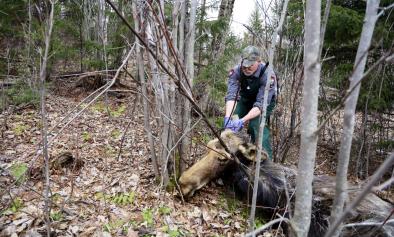Science Source
Fingerprints of global warming on wild animals and plants
- States that although species have responded to climatic changes throughout their evolutionary history, a primary concern for wild species and their ecosystems is this rapid rate of change
- Gathers information on species and global warming from 143 studies for our meta-analyses
- These analyses reveal a consistent temperature-related shift, or ‘fingerprint’, in species ranging from molluscs to mammals and from grasses to trees
- Finds more than 80% of the species that show changes are shifting in the direction expected on the basis of known physiological constraints of species
- The balance of evidence from these studies strongly suggests that a significant impact of global warming is already discernible in animal and plant populations
- Concludes that the synergism of rapid temperature rise and other stresses, in particular habitat destruction, could easily disrupt the connectedness among species and lead to a reformulation of species communities, reflecting differential changes in species, and to numerous extirpations and possibly extinctions
Related Content
Science Source
| Global Change Biology
Decadal-scale phenology and seasonal climate drivers of migratory baleen whales in a rapidly warming marine ecosystem
Daniel E. Pendleton, Morgan W. Tingley, Laura C. Ganley et al
Headline

May 19, 2022 | Climate Nexus Hot News
Climate Change Great For Winter Ticks, Very Bad For Moose Calves
Science Source
Climate change increases cross-species viral transmission risk
Colin J. Carlson, Gregory F. Albery, Cory Merow et al
Science Source
| Journal of Animal Ecology
Climate change affects bird nesting phenology: Comparing contemporary field and historical museum nesting records
John M. Bates, Mason Fidino, Laurel Nowak-Boyd et al


